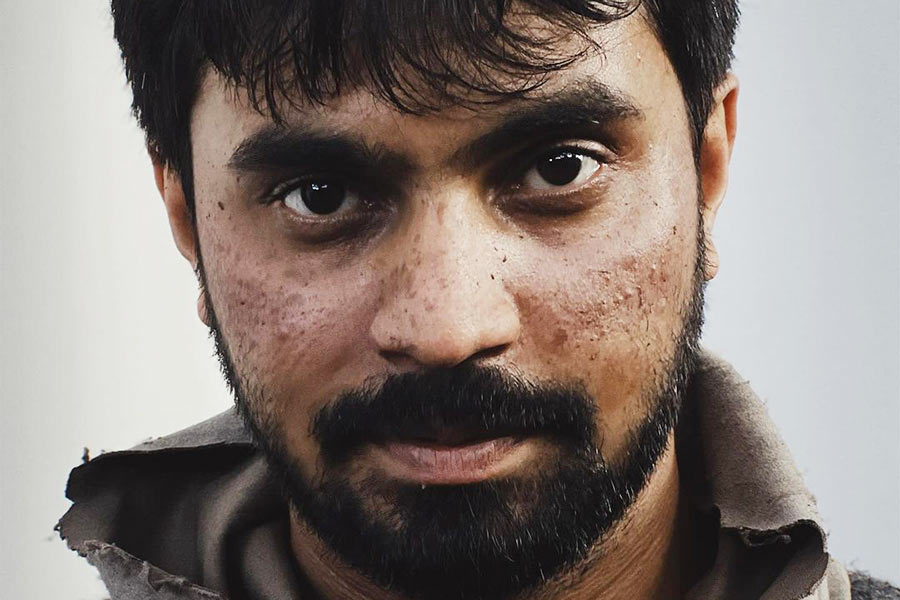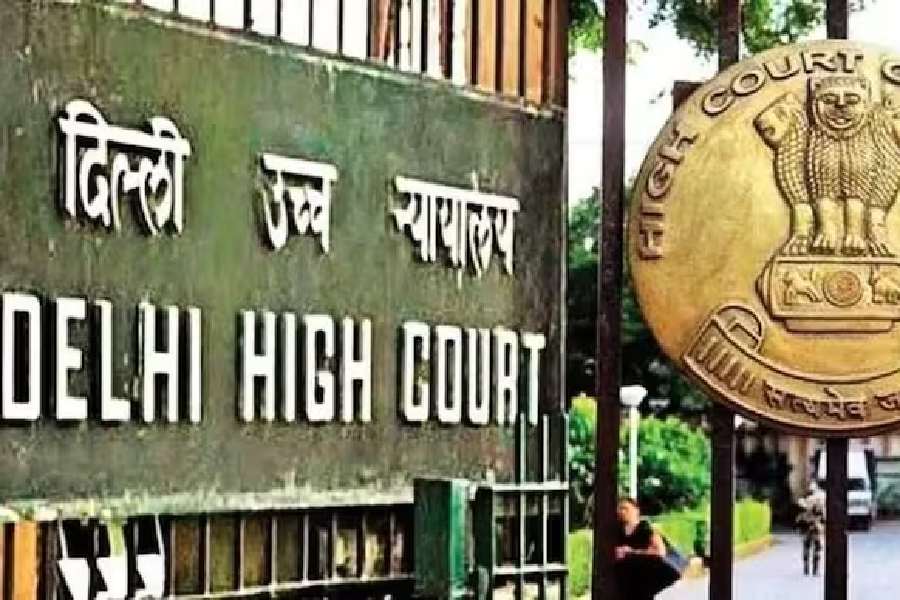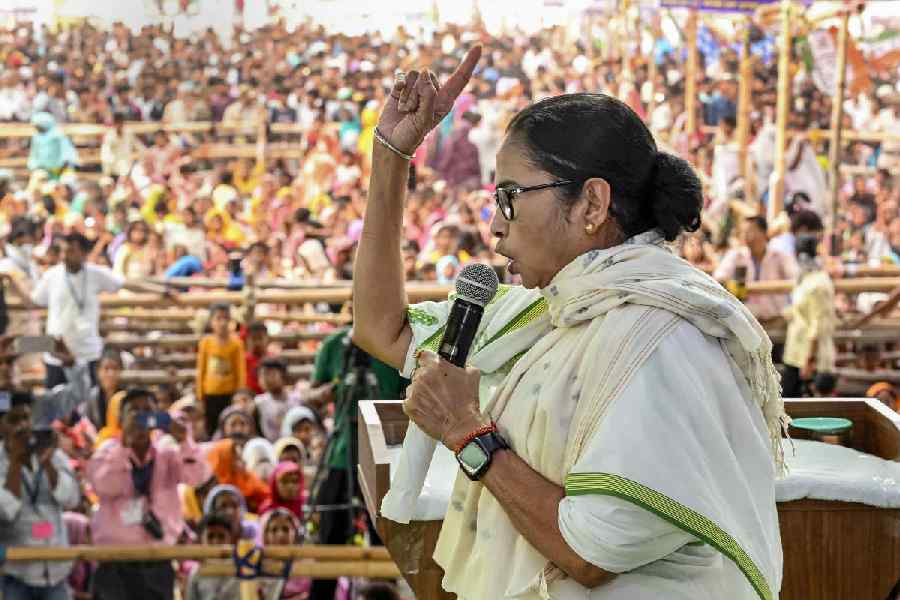In the latter half of 2023, actor Shardul Bhardwaj was selected in the top ten BAFTA Breakthrough talents from India. In an exclusive chat, the young actor, known for his work in Eeb Allay Ooo! (2020), opens up about his choice of films, his play Avalanche and shooting for Suman Ghosh’s The Scavenger of Dreams in Kolkata.
How do you feel about the kind of start your acting career has taken?
Shardul Bhardwaj: I generally do not plan my life or goals or things like that. I realised that doing what one does in the present with as much love as one can is the best that I can ask for. And I have no qualms or anger or regret about how my acting career has turned out. I feel fortunate to have been given roles in films that have meant the world to people. I think I have miles to go. I have a lot to learn.
Some of the best acting teachers have always said that after you get out of your training school (FTII Pune, in my case), it takes you around 15-20 years to actually start implementing what you have learned. I’ve been lucky enough to have had really brave voices behind me. Whether it’s the directors, the cinematographers or the production designers. These were individual, unique voices that have really helped me do what I do.
How big a validation was it to be selected as one of the ten BAFTA Breakthrough Talents?
Shardul Bhardwaj: I would assume people would feel that it would be a landmark moment and something will change drastically in their head or body. But that’s not how it happens with me, whether it is releases or accolades or recognition.
To be included in the BAFTA list like that is in itself an honour, and I feel a lot of pride in the fact that I’ve been included in that list. That’s one kind of validation. Second, I think things like the BAFTA serve to reinforce a certain basic paradigm of work, which is – do what you think is right or do what your gut is telling you rather than be very influenced or pressured by the market, so to say. It’s a bit of a pattern of choosing to do the films that one does in the way one does it.
Your film Eeb Allay Ooo! (2019) received a lot of acclaim. How did the film change things for you?
Shardul Bhardwaj: Eeb Allay Ooo! got a certain viewership that was very fortunate for an independent film. A lot of credit to the producer and the director for keeping it alive for all those years because independent films sometimes take years to release after their festival run. I wouldn’t say anything changed. The reception just cemented the belief system in making films that are collaborative rather than working via hierarchy, which is almost how we made The Scavenger of Dreams (2023; directed by Suman Ghosh).
The Scavenger of Dreams premiered at Busan International Film Festival and was also screened at the Jio MAMI Film Festival. What kind of reception did you get?
Shardul Bhardwaj: I generally get moved by audience responses, especially audiences that will not come exactly in our category of cinephiles, a much younger audience, which we found in Busan. So, some principal HODs were travelling with us, the cinematographer Ravi Kiran Ayyagari, the production designer Monica (Angelica Monica Bhowmik), our director Suman Ghosh, and my co-actor Sudipta Chakraborty.
What I saw there was that a huge chunk of schoolkids or maybe undergrad students attended our shows. They would come and take autographs of not just the actors but also the cinematographer and the production designer. And that sort of respect for the medium really touched me, because I don’t think a film like Scavenger is possible only because I was acting in it or Suman was making it. And it’s not even one person’s baby when you work like that. All I have to say is that these are the people that sort of allow you to look okay doing the films that I do.
In The Scavenger of Dreams, you play a garbage collector in Kolkata. What did that experience do to you as an actor?
Shardul Bhardwaj: I think because we were working with garbage collectors and working in garbage dumps, Suman and I were joking about this, that a chunk of Kolkata would not have seen the places that maybe I saw. Roughly around a month of prep was done where this gentleman called Sanjay, who’s also in the film, would be guiding me through the waste collection and everything. I would go pick up the garbage with him and also spend time with Sanjay and 20-odd garbage collectors at the garbage dump.
I don’t think I look at experiences as an actor or as a director. It’s mostly as a human being because I like to think that my experiences are independent of the job that I do. And I’m fortunate that I’m able to sometimes spend the kind of time I could spend with Sanjay in Scavenger or Mahendar in Eeb… And the through line is that whatever may be the reason, we have stripped people of their dignity, and we are doing that every day, every minute, and now we’re at a point where we’ll not be able to say that, oh, these are invisible jobs, and we actually didn’t pay attention to it. It speaks volumes about the society that we are.
Once you spend time with, say, for example, Sanjay and his colleagues at the dump, you find immense dignity within these people. The very act of living and doing what they do is resistance. And I can’t stress that enough. I think that’s the kind of human indignity we should be looking at.
When one was growing up, to make one study, the fear that was put into them was that if you didn’t study, then you’d be like that guy who sweeps the road. You’d be like that guy who runs the rickshaw. So, labour has always been stripped of its dignity. Coming from middle-class families, it takes you a huge amount of time to actually understand that the plight of a human being is not actually his or her.
What kind of cinema do you want to be associated with?
Shardul Bhardwaj: I don’t know what kind of cinema I want to be associated with, but I think I know what kind of cinema I do not want to be associated with. Any cinema or piece of work that advocates for a group of people or somebody to not have the same rights as others based on their birth and identity is something that doesn’t bode well with me.
You recently did a play called Avalanche. What is it about and how has it been received?
Shardul Bhardwaj: Avalanche is originally a Turkish text. My professional partner and I had this play with us for around two and a half years. This is a play that happens completely in whispers. It is performatively very unique, if I must say. The premise is that there’s a little village on the foothill of a snow-capped mountain, and the people there talk in whispers for nine months of the year for fear of an avalanche.
The play has three generations. We wanted to cast people of particular ages because the play is also very experiential in terms of performance and watching. We wanted to do very concentrated voice work where you whisper but are still audible.
We were translating and almost adapting from the English translation that we had come across after taking the due rights from the playwright’s daughter for three years. It’s an expensive production when one looks at theatre. We were very fortunate that Serendipity came on board. And that’s how we could even think of realistically making it because it needed a certain kind of sponsorship or patronage. Now we plan on starting our Bombay run of shows because we want to perform it to the audiences that we know. G5A, NCPA Experimental, and Prithvi are the spaces where we will be performing most likely.
What are your upcoming projects?
Shardul Bhardwaj: I mostly do independent work. There is no reason for it. It’s just that this is how it rolls down to me. I’m starting a film called The Test. It’s an independent film by a first-time filmmaker called Rahul Mandal, who has also been very close to my mind for a while.
In February, I will work with a first-time director, Abhay Punjabi, again. These guys have been in the industry working in assistant director posts for a while; they are making their first features. There’s another bright filmmaker called Ramana Dumpala, who’s a National Award winner. We did a film together called We Don’t Have Photos Together. We shot it in Hyderabad










